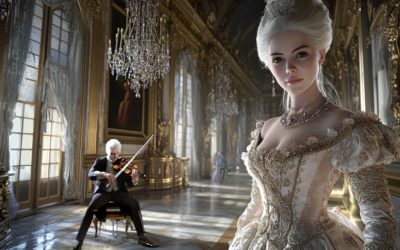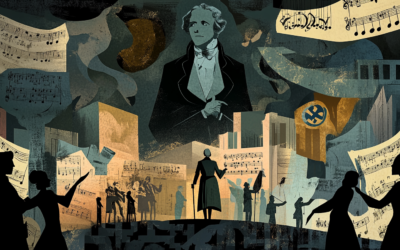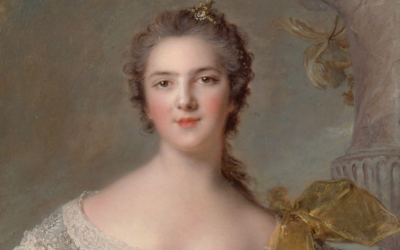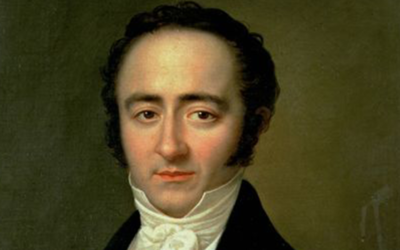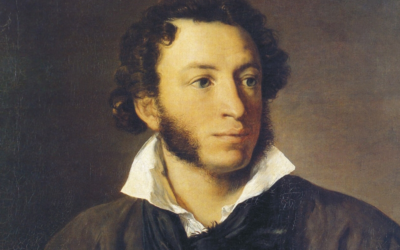Wolfgang Amadé Mozart
A Legacy Rewritten by the Shadows of History
Mozart’s image, often regarded as a universal symbol of musical genius, was heavily manipulated by the Nazi regime, a fact largely ignored in post-war efforts to “denazify” German culture. From propaganda-driven films to anti-Semitic narratives, Mozart’s legacy is far more complex and troubling than we are often led to believe.
Mozart: The Fall of the Gods
This book offers a fresh and critical look at the life of Wolfgang Amadeus Mozart, challenging the myths that have surrounded him for centuries. We strip away the romanticised image of the “natural genius” and delve into the contradictions within Mozart’s extensive biographies. Backed by nearly 2,000 meticulously sourced citations, this work invites readers to explore a deeper, more complex understanding of Mozart. Perfect for those who wish to question the traditional narrative, this biography is a must-read for serious music lovers and historians.
“Mozart, as well as Wagner, was awarded the title of honorary Nazi during the Third Reich.”
Mozart: The Fall of the Gods
In popular culture, Wolfgang Amadeus Mozart is often celebrated as a near-mythical figure, a genius whose music transcends time and borders. Yet, if we turn our gaze towards a different side of history, we find a more complex and less flattering legacy entwined with political manipulation and propaganda. Rather than the eternal “beloved of the gods,” Mozart’s image was exploited by regimes with questionable motives, most notably during the Nazi era.
After World War II, attempts were made by the Allied forces to cleanse German culture of its Nazi influences, a process known as “denazification.” Yet, despite the focus on prominent figures like Richard Wagner, Mozart’s association with the Nazi regime was largely overlooked. Throughout the Third Reich, Mozart’s music was manipulated to fit Nazi ideology, portraying him as a symbol of Aryan cultural superiority. Publications from the period were reissued, propaganda-ridden prefaces were left largely untouched, and revisions were minimal.
Heinrich Damisch, a fervent Nazi supporter and former director of the Wiener Mozart-Gemeinde, was central to this manipulation. Damisch not only contributed to anti-Semitic rhetoric but also continued to be celebrated in post-war Austria with high honours, despite his troubling legacy. His vile anti-Semitic views were ignored, and he was even honoured with the prestigious Gold Medal for services to the Austrian Republic in the late 1950s. This troubling complicity cast a long shadow on the legacy of Mozart and his association with the Salzburg Festival, a cultural institution deeply intertwined with Nazism.
Perhaps one of the most egregious examples of this tainted legacy is the film Wen die Götter lieben (Whom the Gods Love), commissioned by Joseph Goebbels in 1942. The film presented a heavily sanitised and distorted version of Mozart’s life, where figures such as Lorenzo Da Ponte, the Jewish librettist of The Marriage of Figaro, were erased, replaced by the Aryan Franz Süssmayr. This rewriting of history to fit Nazi ideology illustrates the extent to which Mozart’s image was co-opted to serve the regime’s goals.
Yet, after the war, this darker chapter of Mozart’s legacy was largely forgotten, overshadowed by the romanticised narrative of his “universal genius.” The uncomfortable truth about how his music and image were exploited was swept under the rug. Mozart remains, for many, a beacon of musical purity, while the shadows of history tell a far more disturbing tale.
In popular culture, Wolfgang Amadeus Mozart is often celebrated as a near-mythical figure, a genius whose music transcends time and borders. Yet, if we turn our gaze towards a different side of history, we find a more complex and less flattering legacy entwined with political manipulation and propaganda. Rather than the eternal “beloved of the gods,” Mozart’s image was exploited by regimes with questionable motives, most notably during the Nazi era.
After World War II, attempts were made by the Allied forces to cleanse German culture of its Nazi influences, a process known as “denazification.” Yet, despite the focus on prominent figures like Richard Wagner, Mozart’s association with the Nazi regime was largely overlooked. Throughout the Third Reich, Mozart’s music was manipulated to fit Nazi ideology, portraying him as a symbol of Aryan cultural superiority. Publications from the period were reissued, propaganda-ridden prefaces were left largely untouched, and revisions were minimal.
Heinrich Damisch, a fervent Nazi supporter and former director of the Wiener Mozart-Gemeinde, was central to this manipulation. Damisch not only contributed to anti-Semitic rhetoric but also continued to be celebrated in post-war Austria with high honours, despite his troubling legacy. His vile anti-Semitic views were ignored, and he was even honoured with the prestigious Gold Medal for services to the Austrian Republic in the late 1950s. This troubling complicity cast a long shadow on the legacy of Mozart and his association with the Salzburg Festival, a cultural institution deeply intertwined with Nazism.
Perhaps one of the most egregious examples of this tainted legacy is the film Wen die Götter lieben (Whom the Gods Love), commissioned by Joseph Goebbels in 1942. The film presented a heavily sanitised and distorted version of Mozart’s life, where figures such as Lorenzo Da Ponte, the Jewish librettist of The Marriage of Figaro, were erased, replaced by the Aryan Franz Süssmayr. This rewriting of history to fit Nazi ideology illustrates the extent to which Mozart’s image was co-opted to serve the regime’s goals.
Yet, after the war, this darker chapter of Mozart’s legacy was largely forgotten, overshadowed by the romanticised narrative of his “universal genius.” The uncomfortable truth about how his music and image were exploited was swept under the rug. Mozart remains, for many, a beacon of musical purity, while the shadows of history tell a far more disturbing tale.
You May Also Like
The Kolb Concerto: A Mozartian Mirage?
The Kolb Concerto’s dubious origin and poor musical quality expose yet another myth in the Mozartian canon. If this is the work of a genius, then perhaps we’ve been fooled for centuries.
The Adélaïde Deception: Mozart’s “Lost” Violin Concerto and the Art of Musical Forgery
In the early 20th century, the “discovery” of Mozart’s sixth violin concerto in Paris created a sensation. Dubbed the Adélaïde Concerto and supposedly written for Madame Adélaïde of France, it was hailed as a testament to Mozart’s genius. However, as the story unfolds, it becomes clear that this masterpiece was not the work of the child prodigy but rather a carefully orchestrated hoax by Marius Casadesus. Despite its unmasking as a forgery, the concerto continues to captivate audiences, raising questions about authenticity and the music industry’s willingness to deceive for profit.
Mozart and the Nationalist Illusion: The 1931 Festival and Its Legacy
The Salzburg Festival, far from being a mere celebration of Mozart’s genius, was born out of nationalist ambitions during a turbulent period in Austro-German history. Conceived by figures like Max Reinhardt, Heinrich Damisch, and Friedrich Gehmacher, the festival was deeply rooted in ultranationalistic ideals, transforming Mozart’s legacy into a tool for cultural dominance. The truth behind its founding has long been obscured, but the primary sources tell a different, darker story.
K.6 and K.7 Sonatas: A Fabricated Genius?
The earliest sonatas of Wolfgang Amadeus Mozart, K.6 and K.7, are traditionally seen as proof of his precocious genius. But as we explore the murky origins of these works, we find that they may be more a product of Leopold Mozart’s ambition than Wolfgang’s musical talent. The truth, as always, lies somewhere between the notes.
Georg Nissen and the Missing Notebooks – Part II
This second part delves deeper into Georg Nissen’s scheme to expose the truth about Mozart’s death, and the roles of Constanze Mozart and her sons in keeping it buried. As new details emerge, the mystery surrounding the famous composer’s final days grows even darker, with powerful forces potentially at play.
Mozart and Salieri
Pushkin does not see Salieri as a mere mediocre. In fact, Salieri embodies the struggle of the artist, much like Michelangelo, who reaches greatness through relentless effort. Pushkin himself identifies with both Mozart and Salieri, but he emphasises that true art demands work, discipline, and sacrifice. In poisoning the Mozartian element within himself, Salieri performs a service to art, freeing it from the frivolity of effortless genius. ‘Can genius and malice coexist?’ Pushkin’s answer is complex, but in the end, Salieri’s act seems to affirm that true creation lies in the hands of those who strive.



